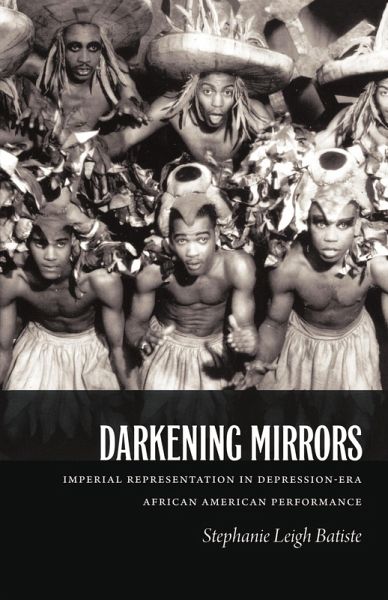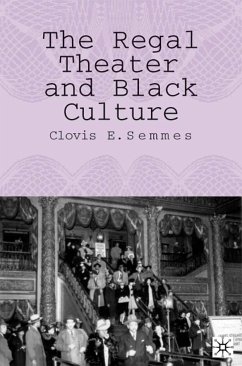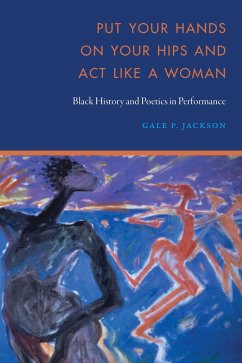
Darkening Mirrors (eBook, PDF)
Imperial Representation in Depression-Era African American Performance
Versandkostenfrei!
Sofort per Download lieferbar
144,95 €
inkl. MwSt.
Weitere Ausgaben:

PAYBACK Punkte
72 °P sammeln!
In Darkening Mirrors, Stephanie Leigh Batiste examines how African Americans participated in U.S. cultural imperialism in Depression-era stage and screen performances. A population treated as second-class citizens at home imagined themselves as empowered, modern U.S. citizens and transnational actors in plays, operas, ballets, and films. Many of these productions, such as the 1938 hits Haiti and The "e;Swing"e; Mikado recruited large casts of unknown performers, involving the black community not only as spectators but also as participants. Performances of exoticism, orientalism, and pr...
In Darkening Mirrors, Stephanie Leigh Batiste examines how African Americans participated in U.S. cultural imperialism in Depression-era stage and screen performances. A population treated as second-class citizens at home imagined themselves as empowered, modern U.S. citizens and transnational actors in plays, operas, ballets, and films. Many of these productions, such as the 1938 hits Haiti and The "e;Swing"e; Mikado recruited large casts of unknown performers, involving the black community not only as spectators but also as participants. Performances of exoticism, orientalism, and primitivism are inevitably linked to issues of embodiment, including how bodies signify blackness as a cultural, racial, and global category. Whether enacting U.S. imperialism in westerns, dramas, dances, songs, jokes, or comedy sketches, African Americans maintained a national identity that registered a diasporic empowerment and resistance on the global stage. Boldly addressing the contradictions in these performances, Batiste challenges the simplistic notion that the oppressed cannot identify with oppressive modes of power and enact themselves as empowered subjects. Darkening Mirrors adds nuance and depth to the history of African American subject formation and stage and screen performance.
Dieser Download kann aus rechtlichen Gründen nur mit Rechnungsadresse in A, B, BG, CY, CZ, D, DK, EW, E, FIN, F, GR, HR, H, IRL, I, LT, L, LR, M, NL, PL, P, R, S, SLO, SK ausgeliefert werden.













